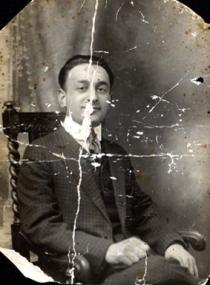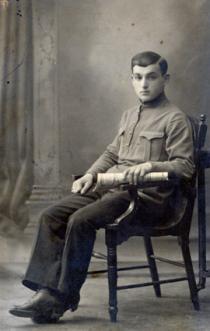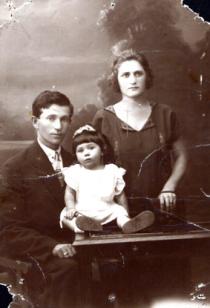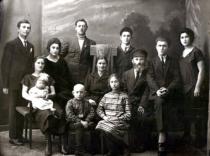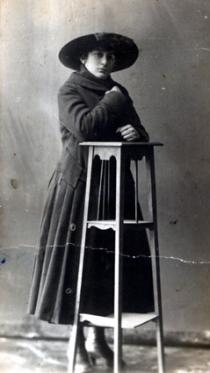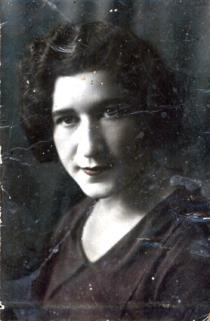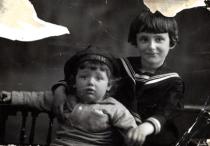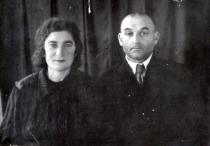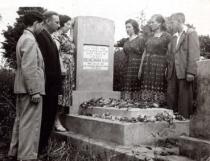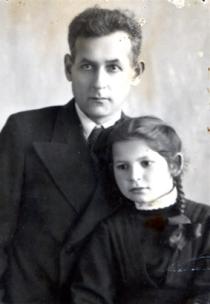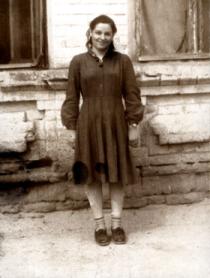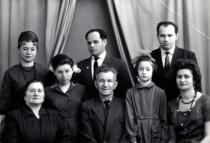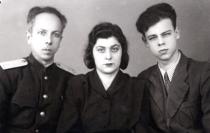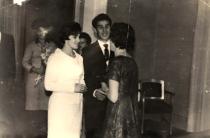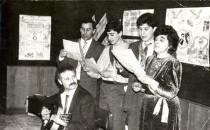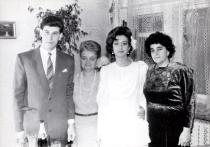My stepsister, my father's daughter from his first marriage Mirah Zalivanskaya.
Our friends photographed her near our house in front of our windows in Saratov in early 1950s.
My father Naum Zalivianski was born in Grodno in 1900. His mother tongue was Yiddish, but he could also speak Russian, but he could hardly write in it.
He studied three years in cheder in his town. He could not continue his studies. He had to go to work to help his parents to support the family. He accepted the [October ] Revolution of 1917 enthusiastically. During the Civil War he and his brother served in the Red Army. He volunteered to the Red Army.
He was a private in the 10th infantry regiment. My father demobilized in 1921 and returned to Tambov where he worked as a tailor: he cut fabrics in shops and also worked at home to earn more. In 1930 he married a Jewish woman named Rosa (I don’t know her maiden name).
In 1931 their daughter Mirah was born. I
n 1933 they moved to his wife’s relatives in Saratov [about 900 km from Moscow]. Shortly afterward his wife died. He lived with his deceased wife’s relatives before he met my mother.
In 1934 my parents got married. They met through matchmakers that was quite a custom with Jews at that period of time. They registered their marriage in a registry office. They were Komsomol members and activists and they didn't have a Jewish wedding.
They invited their closest ones to a small wedding dinner. My father had a daughter from his first marriage. Her name was Mirah. My father and Mirah moved into my mother's 16-square-meter room in Nizhniaya Street. There was a 12-square-meter kitchen with no windows.
My stepsister Mirah was born in Tambov in 1931 [800 km from Moscow]. She finished a Russian grammar school for girls. She glued inner soles at the shoe factory. She got married through matchmakers in Vilnius in 1953. Her husband's name was Meyer Vilenchik. I don't know what he did to earn their living.
Mirah was a housewife. The family of Meyer Vilenchik was shot in the ghetto in Vilnius in 1942. He was the only survivor. A Lithuanian woman rescued him when he was a boy. His hair turned gray after he witnessed the shooting. He saw many terrible things.
When he married my stepsister he was eager to move to Israel. He left Russia in 1955. They moved to Poland with their daughter Malka and adopted Polish citizenship and from there they had no problem with moving to Israel.
Their daughter Lisa was born there. Lisa lives in a kibbutz in Neheva and Malka lives in Petah Tikvah. Malka works as a medical nurse in a hospital. They can speak very poor Russian.
Mirah died in Israel in 1968 at the age of 37.

